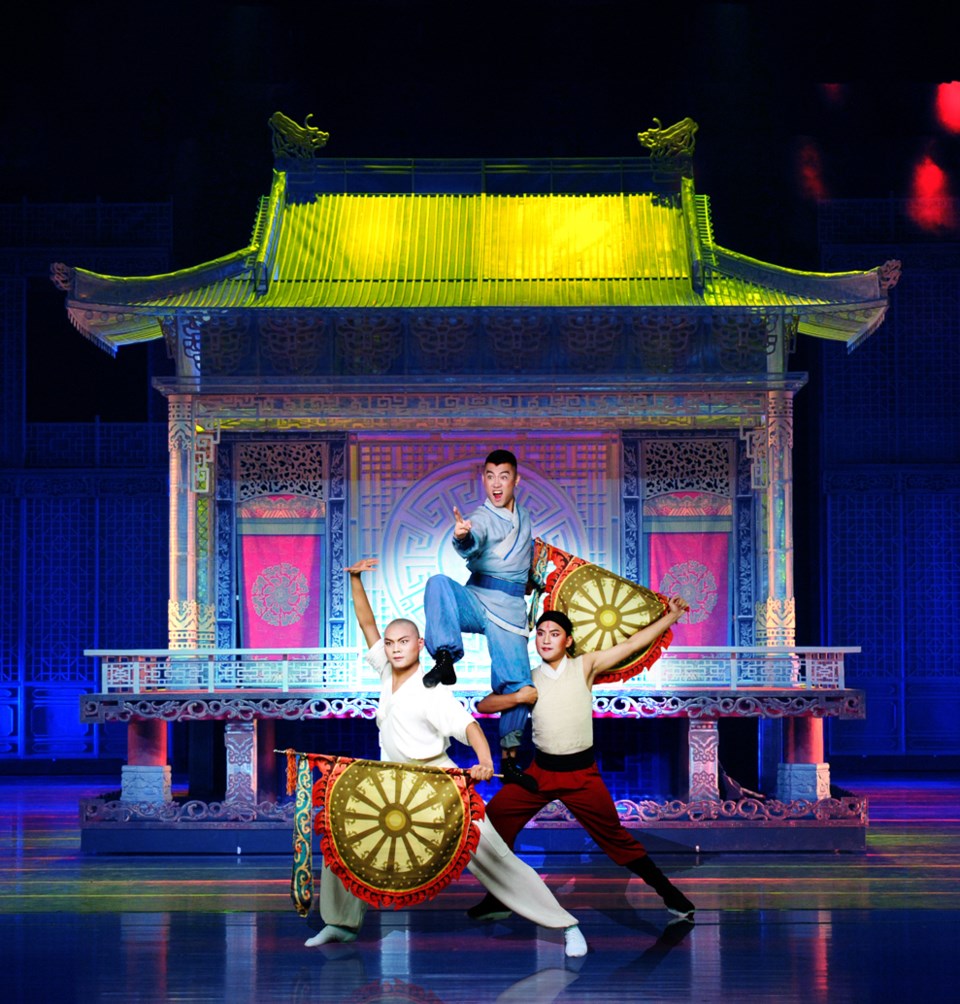A dramatic display of Chinese culture touches down in Vancouver next week, and Queen Elizabeth Theatre can barely contain it.
In fact, in order to accommodate the sprawling 3,444-sq.ft. set and spectacular choreography of Opera Warriors, the venerable theatre will have to remove its first seven rows of seats.
But Opera Warriors’ renowned choreographer Xing Shimiao, longstanding dance director of the famous CCTV Spring Festival, in collaboration with the award-winning creative team behind the 2008 Beijing Olympics opening ceremonies, says this is nothing compared to what is seen on stages in China.
“It’s not that big a production in our minds,” laughs Xing, speaking in Mandarin through a translator over the phone from China. “But we do pay a lot of attention to culture in China."
The touring production of Opera Warriors – a colourful blend of music, theatre, dance, martial arts and acrobatics – boasts 40 dancers from the Huajin Dance Drama Ensemble. The original show, however, which debuted in 2011, required more than 100.
In order to deliver the physically demanding production, which involves incredible feats of flexibility and precision, the cast trained for upwards of three years. In some cases, it was in order to coerce their bodies into accepting the gruelling stunts. For others, it involved learning how to control Opera Warriors' 230 elaborate costumes.
“Chinese Opera requires a lot of feats of the performers, and a normal dancer does not have the necessary skills,” explains Xing, of the training process. “For example, the beards. Different Peking Opera actors wear different beards on stage, and the beards represent their different roles [and personalities] in the show. But [mastering] the movements of the beards also requires a lot of practice.”
Other scenes – made to look effortless – involve dancers coordinating 2.5-metre-long silk sleeves, or balancing in painfully tiny stilt shoes.
“[Chinese opera] is part of our tradition," states the former dancer, who spent 15 years researching and conceiving the blockbuster piece. "In different parts of China there are more than 1,000 opera troupes still working and performing.”
Presented by the Image China cultural-exchange program and sponsored by UBC, Opera Warriors tell the story of Peking Opera itself, capturing the essence of the stylized Chinese art form (named for the city now known as Beijing) in a dramatic love story.
Set in the early 1900s and written by Pik Wah Li (aka Lillian Lee, screenwriter of the 1993 film Farewell My Concubine), Opera Warriors follows three gifted Peking Opera apprentices as they develop their talents under the same martial-arts master. After completing their training, the three join the same theatrical troupe (akin to joining the North American circus). Jealousy and tragedy, however, threaten to derail their plans.
"This leads to the separation of the three brothers," explains Xing. "[But] the youngest one, after suffering many hardships and coming to a dead end, finds the right way out of difficulties with great determination.
“This actually conveys the saying of our ancestors," he adds. "You must first become a man, and then be a good performer. Because being a good person is more important than performing.”
• Opera Warriors runs at the Queen Elizabeth Theatre Jan. 5-6 at 8pm. Tickets from $28; Ticketmaster.ca.


